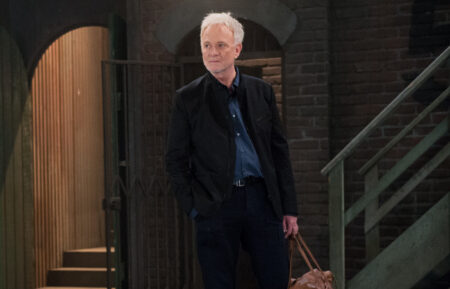The Biggest ‘Biggest Loser’ Controversies, Explained

The Biggest Loser finally left the spotlight in 2020, but not after the one-time ratings hit transformed many contestants’ lives in ways NBC wouldn’t want you to know.
The competition — which ran for 17 seasons on NBC from 2004 to 2016 and one on USA Network in 2020 — had contestants vying to lose the highest percentage of their body weight for a grand prize. That premise alone puts the show into body-negative, fat-phobic territory, but The Biggest Loser got even more problematic from there, considering contestants claimed they were harming themselves in their race to a smaller body.
“The Biggest Loser doesn’t save lives. It ruins lives,” Season 2 competitor Suzanne Mendonca told the New York Post in 2016. “Mentally, emotionally, financially — you come back a different person. Half the people from my season have gotten divorced. The ripple effect isn’t just weeks or months. It’s years.”
Now Netflix is delving into the show’s ills with the three-part documentary Fit for TV: The Reality of The Biggest Loser — premiering on Friday, August 15 — featuring commentary from contestants, trainers, producers, and health professionals. Ahead of that documentary, read about the biggest Biggest Loser controversies below.
2007: Season 3 runner-up Kai Hibbard’s report sounds early alarm bells
After dropping 118 pounds on The Biggest Loser Season 3, Kai Hibbard blogged in 2007 she had severely dehydrated herself using asparagus, colonics, and six-hour spans of intermittent sauna use in the two weeks before the season finale, per a New York Times article reporting the risks of The Biggest Loser’s rapid weight-loss timeframe.
“What would I advise someone who wants to engage in a program associated with increased risks of gallstones, cardiac arrhythmias and electrolyte abnormalities, and that has been shown to be less likely to lead to long-term success in maintenance of a reduced body weight than losing weight more slowly?” Dr. Michael Rosenbaum, a doctor at Columbia University and expert in weight loss physiology, said to the Times. “I would advise them not to do it.”
2009: Two contestants collapse and are hospitalized
In a one-mile footrace in The Biggest Loser’s Season 8 premiere, two contestants collapsed from heatstroke, according to The New York Times. One was Tracey Yukich, who was airlifted to a nearby hospital and woke up without her memory, as she revealed to NBC 5 Dallas-Fort Worth.
“If we had it to do over, we wouldn’t do it,” Dr. Rob Huizenga, then The Biggest Loser’s medical consultant, told the Times. “It was an unexpected complication, and we’re going to do better.”
A former contestant also supplied the newspaper with a disclosure The Biggest Loser participants had to sign, which said that “no warranty, representation or guarantee has been made as to the qualifications or credentials of the medical professionals” who examined them “or their ability to diagnose medical conditions” affecting their potential ability to compete on the show.
2010: Hibbard says The Biggest Loser gave her an eating disorder
Talking to Jezebel in 2010, the aforementioned Hibbard said she was eating 1,000 calories a day and working out between five and eight hours a day during her Season 3 run. “And my hair started to fall out,” she added. “I was covered in bruises. I had dark circles under my eyes. Not to get too completely graphic, but my period stopped altogether, and I was only sleeping three hours a night. I tried to tell the TV show about it, and I was told, ‘Save it for the camera.’”
Hibbard also said her Biggest Loser experience gave her an eating disorder that she was battling every day. “And it also messed up my mental body image because the lighter I got during that TV show, the more I hated my body,” she recalled. “And I tell you what, at 144 and at 262 and at 280, I had never hated my body before that show. … I do still struggle [with an eating disorder]. I do. My husband says I’m still afraid of food. … I’m still pretty messed up from the show.”
2014: Trainer Jillian Michaels says Rachel Frederickson “lost too much weight,” then exits the show
The Season 15 finale revealed that winner Rachel Frederickson had lost 155 pounds, going from 260 to 105, and viewers immediately flocked to social media to say she looked gaunt. Dolvett Quince, Frederickson’s trainer on the show, tellingly wrote on Facebook at the time that her “journey to good health has not yet ended.”
After the finale, The Biggest Loser trainer Jillian Michaels told HuffPost Live she was “stunned” by Frederickson’s result, adding, “I thought she had lost too much weight. … In my opinion, this had fallen through [the show’s] checks and balances.”
Four months later — and after sparking controversy and accusations that she cheated by allowing her team to take caffeine pills — Michaels left the show. “I had to take a hard look at my work,” she told People at the time. “I came to the conclusion that moving forward, I need to be able to have an impact on the outcome of what I do.”
2016: Study shows The Biggest Loser slows contestants’ metabolisms and changes their hormones
The phenomenon of “metabolic adaptation” causes individuals’ metabolisms to slow as they lose weight, but a 2016 scientific study found that for former Biggest Loser contestants, the “magnitude of metabolic adaptation increased” six years after the competition, Vox reported.
Furthermore, the researchers also found the competition almost completely depleted contestants’ supply of leptin, a hormone that regulates hunger and sends fullness signals after eating, meaning contestants felt constant hunger after the competition. And six years later, contestants’ leptin levels had only increased to about 60 percent of the pre-Biggest Loser levels.
2016: Former contestants allege they were given drugs on the show
That same year, a source close to The Biggest Loser’s production told the New York Post that staff members had given contestants Adderall and “yellow jacket” pills that contained ephedra extract, a weight-loss drug the FDA banned in 2004. Season 7 contestant Joelle Gwynn told the Post that trainer Bob Harper’s assistant gave her a “yellow and black” pill and that the aforementioned Huizenga knew about it.
Huizenga denied the claims, telling the Post that “nothing could be further from the truth” and that contestants were informed “there is zero tolerance for any weight-loss drugs.” And Biggest Loser producers said in a statement to the newspaper that the “safety and wellbeing of our contestants is, and always has been, paramount” and that they “prohibit the use of any illegal substances.”
At some point, NBC launched an internal investigation into whether contestants were drugged, per The Hollywood Reporter, but the results of that investigation have not been disclosed.
2020: USA Network’s Biggest Loser premieres, repeats the NBC version’s sins
NBC declined to continue The Biggest Loser past 17 seasons — and court documents filed by Huizenga and cited by DailyMail.com attribute the cancellation to Gwynn’s claims, detailed above — but the series returned for one more season on USA Network in 2020.
And though USA pitched the reincarnation as a “holistic, 360-degree look at wellness,” the new version yet again began with the contestants subjected to a one-mile run, just like the Season 8 premiere that sent contestants to the hospital. In its 18th season, The Biggest Loser “fetishize[d] workout culture as much as it ever has,” The Atlantic’s Sophie Gilbert wrote. Contestants started interval training and ended up vomiting. A trainer told a lightheaded contestant to keep pushing. Another trainer told his team they weren’t “working hard enough” because they weren’t puking like the other team.
“The Biggest Loser hasn’t changed,” Gilbert says. “Shame is its overtaxed heart, self-hatred its rigid core.”
Fit for TV: The Reality of The Biggest Loser, Friday, August 15, Netflix







